Hi once more,
Autumn leaf colours are superb at the moment aren't they?
Enjoy them while they last.....
Wild Update - October 2024
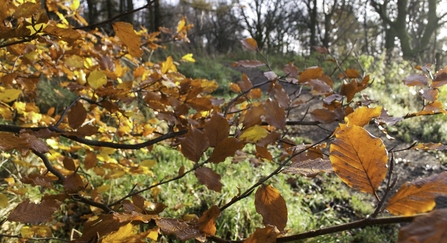
Autumn leaves -Katrina Martin
More on Fungi
Thanks to several folk who have sent photos of their fungal finds in churchyards and elsewhere.
Jim Alder found a lilac coral fungus near Ashover - what an extraordinary colour!
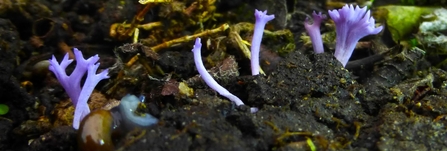
Lilac Coral - Jim Alder
Chris Jackson found the not uncommon green and yellow parrot waxcap at Kedleston. The unusual greeny stems are a clue to its ID.
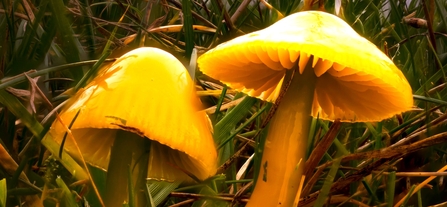
Parrot Waxcap - Chris Jackson
Chris also photographed bonnet mold Spinellus fusiger, a tiny species which feeds on the fruiting bodies of other fungi as they decay:
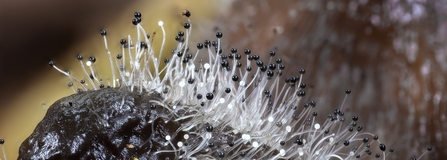
bonnet mold - Chris Jackson
Ben Spinoza and Issy Spoerry have been checking churchyards and finding some with a good fungus assemblage.
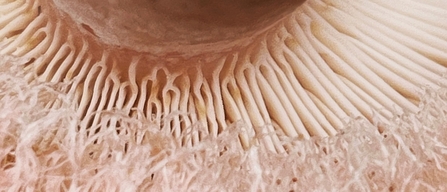
woolly milkcap fungus - Ben Spinoza
The pink gills of the woolly milkcap fungus. If damaged, a white 'milk' exudes
Some stories you may have missed
There seems to be so much going on at the moment, I find it hard to keep pace!
COP16 has started and TWT's Craig Bennett and Rob Stoneman are there in Columbia taking part.
See one of several feedback videos here: The Wildlife Trusts' #COP16 Update 21/10/2024
Hark the herald
Some moths overwinter as adults and one such is the herald moth.
It seeks out caves or tunnels and is sometimes found side by side with hibernating peacock butterflies.
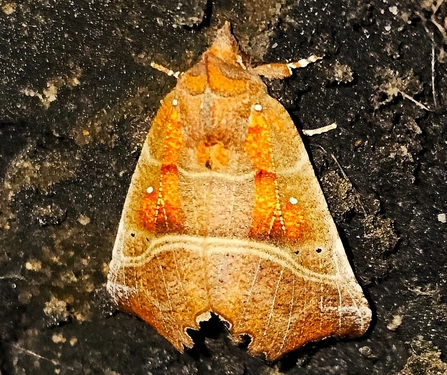
Herald moth hibernating in a dark tunnel. Sid Morris.
Some recent bird news
Two red billed choughs were seen on Win Hill by Ladybower Reservoir and later briefly at Thornhill Carrs NR, only the second ever county record of these (usually coastal and high mountain) corvids.
If you are not familiar with this lovely bird (and its call), watch this video: Red-billed Chough in Pembrokeshire .
They have returned to Cornwall of their own accord and are doing very well there now.
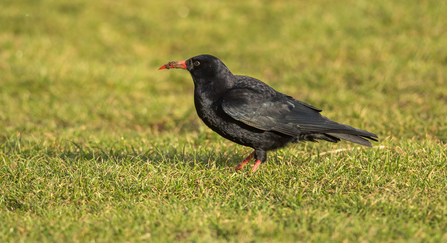
false - Janet Packham
A great northern diver has appeared again at Carsington, presumably the same bird that wintered there last year.
Yellow browed warblers from Siberia were seen at six sites including Willington Wetlands and Drakelow.
A flock of up to nine cattle egrets has built up again at Willington. Note the yellow beak - little egret beaks are black.
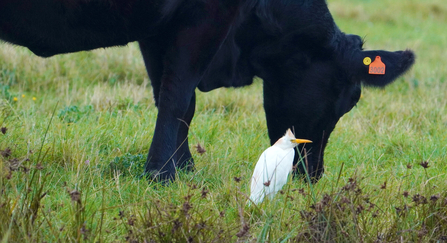
Cattle egret - Jim Higham
